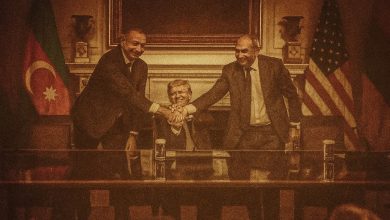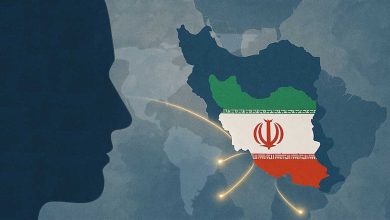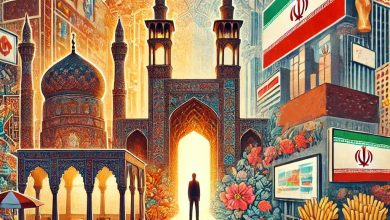Iran as a Subordinate Partner, Not a Strategic Ally for Russia

The relationship between Iran and Russia is multifaceted, encompassing political, economic, and security dimensions. These ties have constantly been shaped by international developments, the national interests of both states, and their respective interactions with global powers—especially the United States.
Politically, Iran and Russia have aligned on certain issues, such as the Syrian conflict and efforts to counter Western influence. However, in other regions—most notably the South Caucasus and Central Asia—their interests diverge. Iran seeks to expand its regional influence, while Russia aims to preserve its traditional dominance. In this context, Russia views Iran as a subordinate partner, unable to fully align with or fulfill Moscow’s strategic objectives.
Economically, bilateral trade between the two countries remains limited, primarily involving agricultural products and energy resources. Due to international sanctions on Iran and infrastructural constraints, trade volumes have not reached levels indicative of a strategic partnership. Russia, in its broader economic priorities, favors deeper ties with countries like China and European states, perceiving Iran more as a secondary market.
In the security realm, there has been cooperation such as the sale of S-300 defense systems and coordination in Syria. However, Russia always balances its ties with Iran against its relationships with Arab states and Israel. This balancing act reinforces the perception that Iran is a secondary security partner, rather than a genuine strategic ally.
While Iran and Russia share overlapping interests, these are insufficient to form the basis for a full-fledged strategic alliance.
For instance, both countries supported Bashar al-Assad during the Syrian civil war—but their involvement differed in form and scope. Iran deployed ground forces, incurring significant costs, while Russia intervened mainly through its air force. This asymmetry illustrates Russia’s preference for crisis management via political and military means, whereas Iran engaged in direct and costly involvement.
Moreover, Russia often turned a blind eye to Israeli airstrikes on Iranian bases in Syria, signaling its intent to preserve ties with Tel Aviv—even at Iran’s expense. This lack of response underscores Moscow’s reluctance to incur costs for Tehran.
In recent years, Russia has also deepened its economic and military ties with Persian Gulf states like Saudi Arabia and the UAE—nations that strongly oppose Iranian influence in Syria. It is therefore unsurprising that Russia has taken steps to curb Iran’s role in the region to maintain relations with these actors.
Furthermore, through the Astana negotiations and bilateral deals with Turkey, Russia allowed Ankara to assert influence in northern Syria. Given Turkey’s support for anti-Assad factions, this development also worked against Iran’s interests.

Perhaps the most compelling evidence that Russia is not Iran’s strategic ally lies in its voting behavior at the United Nations Security Council. Contrary to popular belief that Russia consistently backs Iran, Moscow has either voted against Iran or refrained from using its veto in several critical instances.
-
UNSC Resolutions 1737 (2006) and 1747 (2007): Both imposed sanctions on Iran’s nuclear program and passed with Russia’s affirmative vote—signaling that Moscow was willing to sacrifice Iran’s interests to maintain relations with the West.
-
UNSC Resolution 1929 (2010): One of the harshest sanction regimes against Iran, this resolution imposed broad restrictions—including arms embargoes and bans on ballistic missile-related technologies. Russia not only voted in favor but also committed to its implementation.
-
UNSC Resolution 2231 (2015) and arms embargo provisions: Although this resolution underpinned the JCPOA, it extended arms restrictions on Iran for several years. Russia cooperated with Western powers to enforce these limits, and at one point even delayed the delivery of the S-300 missile system to Iran.
Russia has repeatedly shown that its relationship with Iran is tactical and limited, not strategic. Its voting record in the Security Council, alignment with sanctions, and efforts to maintain ties with Western powers, Israel, Saudi Arabia, and even cooperation with the UAE on disputes such as the three Persian Gulf islands, all reinforce the notion that Iran is a junior partner in Russia’s geopolitical calculus—not a strategic ally.






